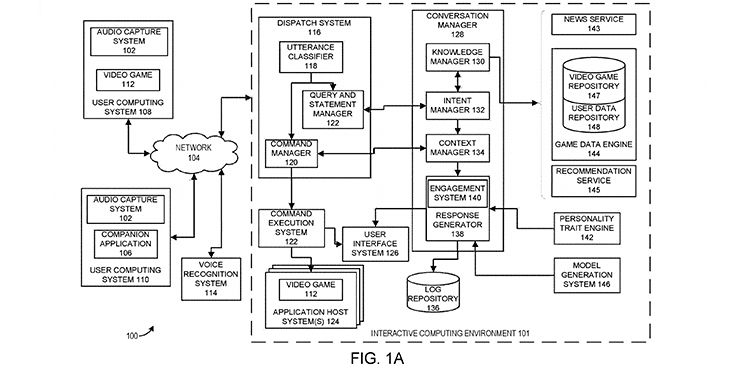Video game companies are constantly trying to find novel ways to improve the player experience and immersion in a game. Sony seems to be one of the more active in this domain, with the company frequently filing patents for innovations like pairing struggling PlayStation players with experts, tracking real-life facial expressions and converting them to emojis, and developing a gambling system to allow betting during esports events. Nintendo and Electronic Arts also regularly file patents to attract players and enhance their experience.
Another focal point for some patents is to extend user engagement with a game for as long as possible and entice the user to play over multiple sessions. The amount of time that a user is engaged with and enjoys a video game correlates directly to that game’s overall level of success. This theory applies both to single and multiplayer titles, as video games that provide a poor multiplayer experience will have trouble maintaining a consistently high number of users.
On August 3, Electronic Arts filed a patent for a “voice-controlled companion application” that would allow users to control a video game with voice recognition using a mobile device. Players would be able to use the companion application when unable to directly access the video game, for example, due to distance from the console or other obligations. The goal of this technology is to maintain a player’s engagement with the companion application and therefore indirectly with the video game itself.
In the case of the EA patent, the companion application would give players the ability to interact with at least a portion of a game without actually having to execute the video game software. Examples cited are a player using the application to customize their video game character or team, buy or sell digital items, and even direct a character or team to perform a particular action or travel to a certain location.
The EA companion application could also keep track of character stats, available quests or missions, and the number of people currently playing the game on a particular server. In some scenarios, the user might be able to play mini-games that reward in-game items like weapons, costumes, or skill points. Another provided example of the application’s use is that of a person directing an NPC via voice commands while also moving the player character with the controller.
The appeal of such a companion application, in addition to keeping a person regularly engaged with a game even when they’re not actively playing, is that it would require less processing power and could therefore be used even on lower end mobile devices. It could make use of voice-controlled speakers like Amazon Echo or Google Home. The Electronic Arts patent text clarifies that while the description provided pertains to video games, the companion application could also prove useful with other types of software.


